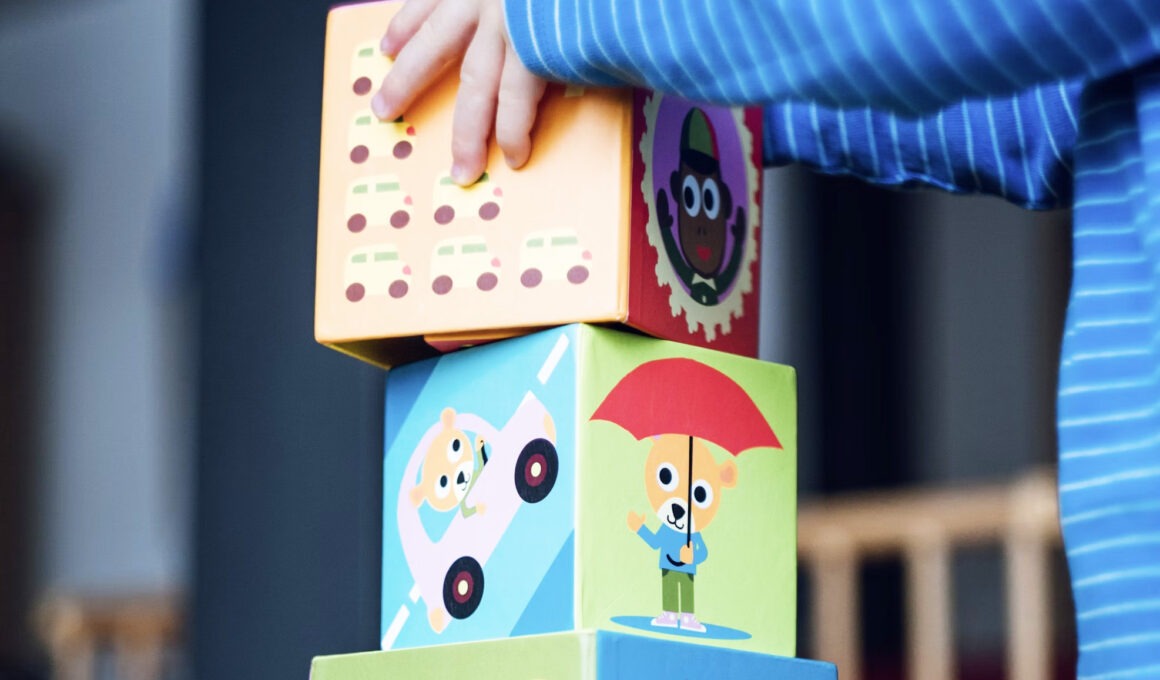Playtime isn’t just about keeping your little one entertained. It’s a vital part of your child’s learning and development process. Babies learn about their world and develop key skills through different forms of play. From enhancing cognitive abilities to supporting emotional and social growth, playtime is an amazing opportunity for parents to engage their little ones in ways that help them thrive.
Sure babies find fun and joy in just about any activity. In fact, simply giving your baby attention is sufficient to keep them entertained. However, as parents, we should employ different techniques to help our babies blossom intellectually. One of the easiest way to do that is through playtime.
Here are some fun and effective playtime ideas designed to boost your baby’s intelligence and support their overall development
Sensory Play
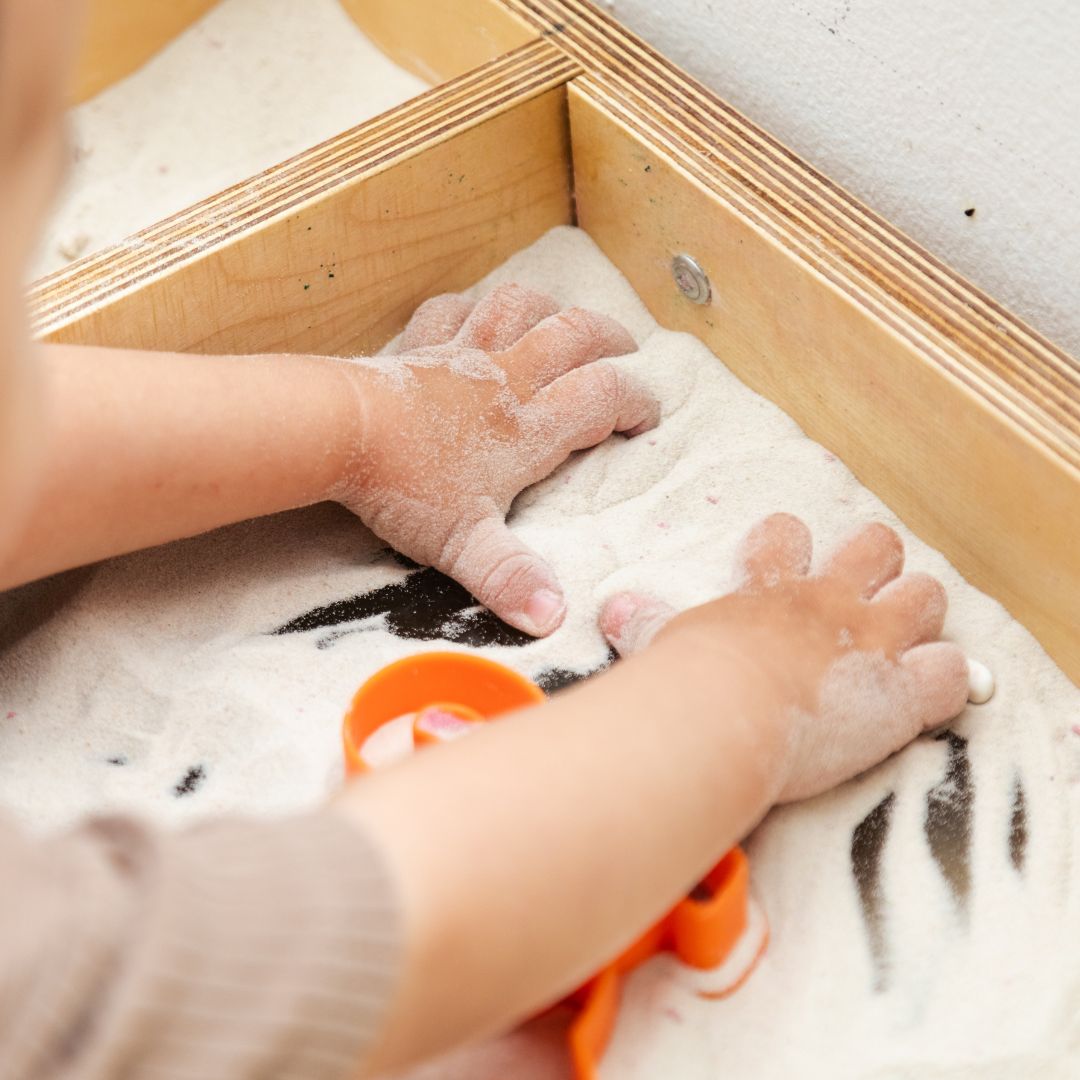
Sensory play is a key play activity that helps babies engage with their environment through touch, smell, sound, sight, and taste. By engaging all of their five senses, babies helps develop connections within their sensory system. This is so important for cognitive development.
Some ways you can incorporate sensory play as part of your playtime include:
- Texture Bins: Create a sensory bin filled with safe items like soft fabrics, sponges, and rubber balls for babies to touch and feel.
- Water Play (summer activity): Let your baby splash in a shallow tray of water with floating toys. It’s fun and helps them understand cause and effect.
- Musical Instruments: Instruments like shakers, tambourines, or even just pots and wooden spoons allow babies to explore different sounds and rhythms.
Peekaboo Games

A classic playtime idea, peekaboo teaches babies about object permanence. This is the understanding that things continue to exist even when out of sight which is a fundamental cognitive skill. This type of play encourages memory development and curiosity.
At an early age you can start by simply hiding your face behind your hands or hiding a toy behind your back. As your baby grows older, you can play games such as “hide and seek”.
A few simple ways to enjoy peekaboo playtime ideas include:
- Use a blanket or your hands to hide your face and then reveal yourself, saying “peekaboo!” as you do.
- Try hiding a favorite toy under a cloth and watch as your baby learns to find it.
ALSO READ: Unlock Your Baby’s Genius – Brain Boosting Activities for Babies
Reading Together

As the age of technology progresses, reading to your baby has become one of the lesser used playtime ideas. But reading as an activity is so important for your baby’s development.
Reading to your little one, even before they understand words, builds language skills, exposes them to sounds, and boosts bonding. This can be in the form of bedtime stories or even picture books during the day.
A few ways to help make reading together a fun playtime ideas include:
- Choose board books with bright colors, high-contrast images, and simple text.
- Point to objects in the book as you read, describing them aloud. Babies begin to associate sounds with words and visuals.
- Don’t worry about reading every word. Feel free to describe the pictures, make sounds, and engage your baby’s curiosity.
- Read bedtime stories to your little one. This engages your child’s curiosity and strengthens their memory, focus and attention span.
Building Blocks and Stacking Toys

Perhaps one of the more common playtime ideas shared by parents across the world is building blocks. You can find a variety of building or stacking games for your little one in just about any store.
Building and stacking activities enhance fine motor skills, spatial awareness, and problem-solving abilities. These are all key to improving your child’s overall cognitive capacity and intelligence.
Here are some ideas for building blocks and toy stacking playtime:
- Start with soft stacking rings or lightweight blocks. Show your baby how to stack them up, then let them knock it down. Repetition helps them learn.
- Use large, lightweight blocks that are easy for babies to grip and place. This activity improves hand-eye coordination and patience.
- As your baby grows, you can move to smaller building blocks such as Legos.
ALSO READ: 50 Ways to Boost Your Baby’s Brain Development
Mirror Play
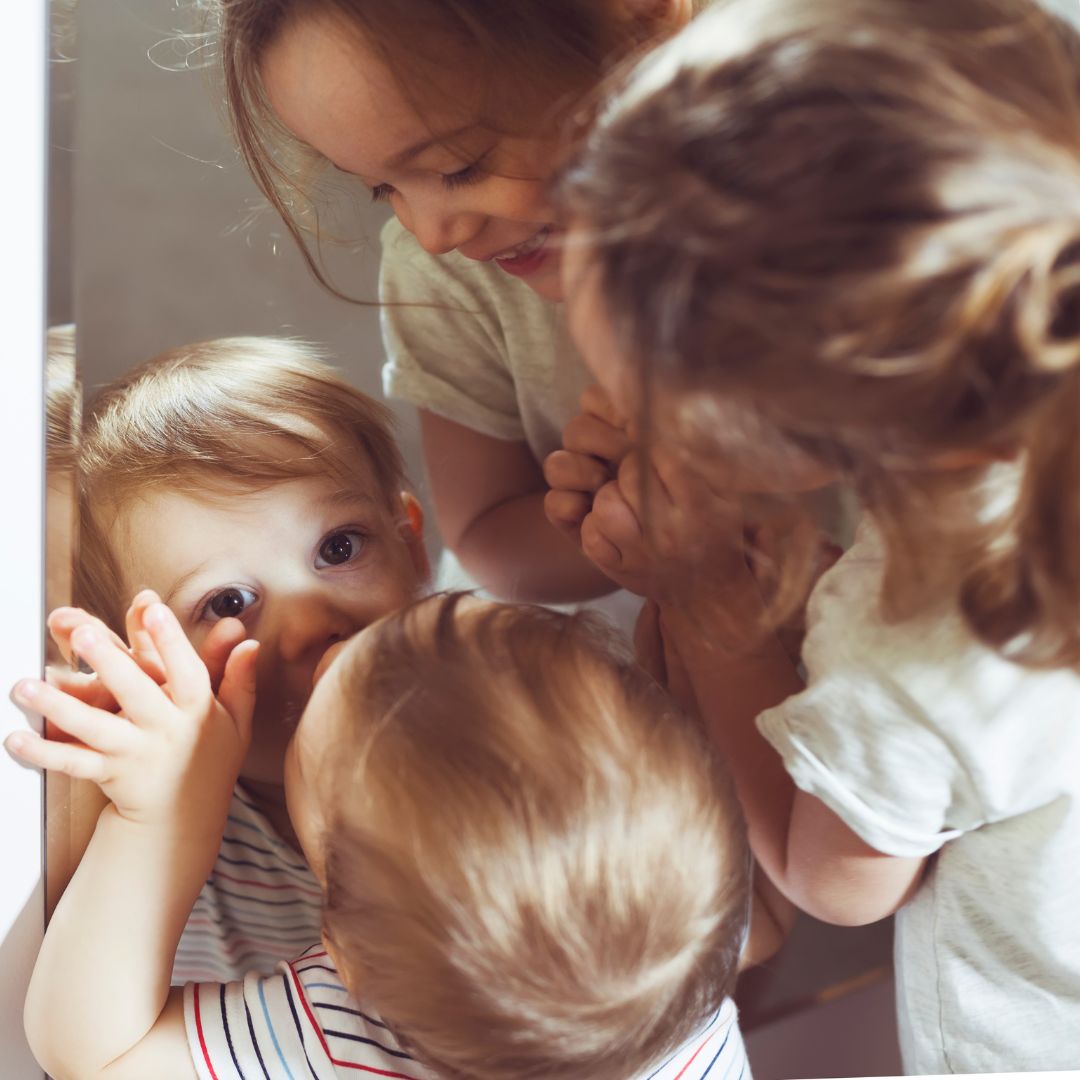
A lot of parents keep mirrors away from their kids at a young age. While that is definitely important for safety reasons, having a firmly mounted mirror or a large immovable mirror can be your best bet. Don’t forget to be present with your baby during mirror play.
Mirror play stands out from other playtime ideas because it is one of the few ways that babies develop a sense of self – a key part of emotional and social intelligence.
If you’re struggling with ideas for mirror play, these can help:
- Place a baby-safe mirror on the floor during tummy time. Babies love looking at their reflection and may start to recognize themselves over time.
- Sit with your baby in front of a mirror and make faces, smiling, or sticking out your tongue. They’ll often try to imitate you, which is great for both motor and emotional development.
- Talk to your baby through a mirror. Incorporate other forms of play such as peek-a-boo or dancing while keeping your baby focused on their reflection.
Music and Movement

Music has long been found to play a crucial part in baby development. Exposure to music and movement supports coordination, rhythm, and listening skills. It also stimulates areas of the brain responsible for language and spatial reasoning.
Incorporate music and movement playtime ideas into your days by:
- Playing gentle music and dancing with your baby. Let them feel the rhythm and enjoy moving along with you.
- Try gentle clapping or tapping your baby’s hands and feet to the beat. Babies start to develop rhythm and coordination, and they’ll love this interactive experience.
ALSO READ: Does Music Affect Baby Development?
Cause-and-Effect Toys
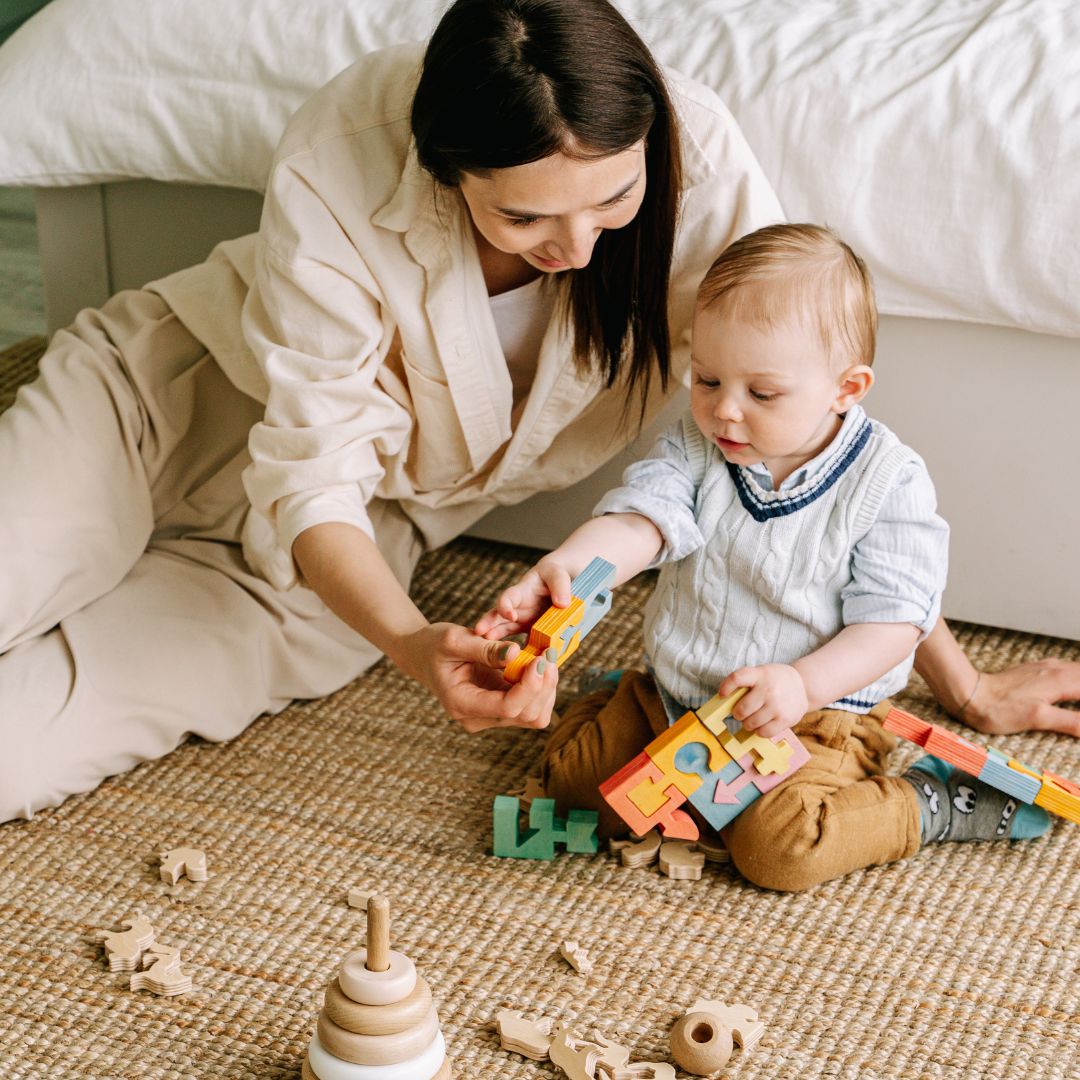
Cause-and-effect toys encourage babies to understand how their actions lead to results, which is an important part of cognitive development. It also lays the foundations of an important life lesson “actions have consequences”. Though not as serious as the life lesson goes, it is a fun and engaging way to teach your little one how A causes B.
A few ideas to experiment with include:
- Give your baby a toy that lights up or plays a sound when they press a button. This helps them understand that pressing the button leads to an effect.
- Pop-up toys are another great option, where pressing, twisting, or pulling causes characters to pop out. Babies love these surprises and begin to understand how their actions can influence outcomes.
Pretend Play with Everyday Objects
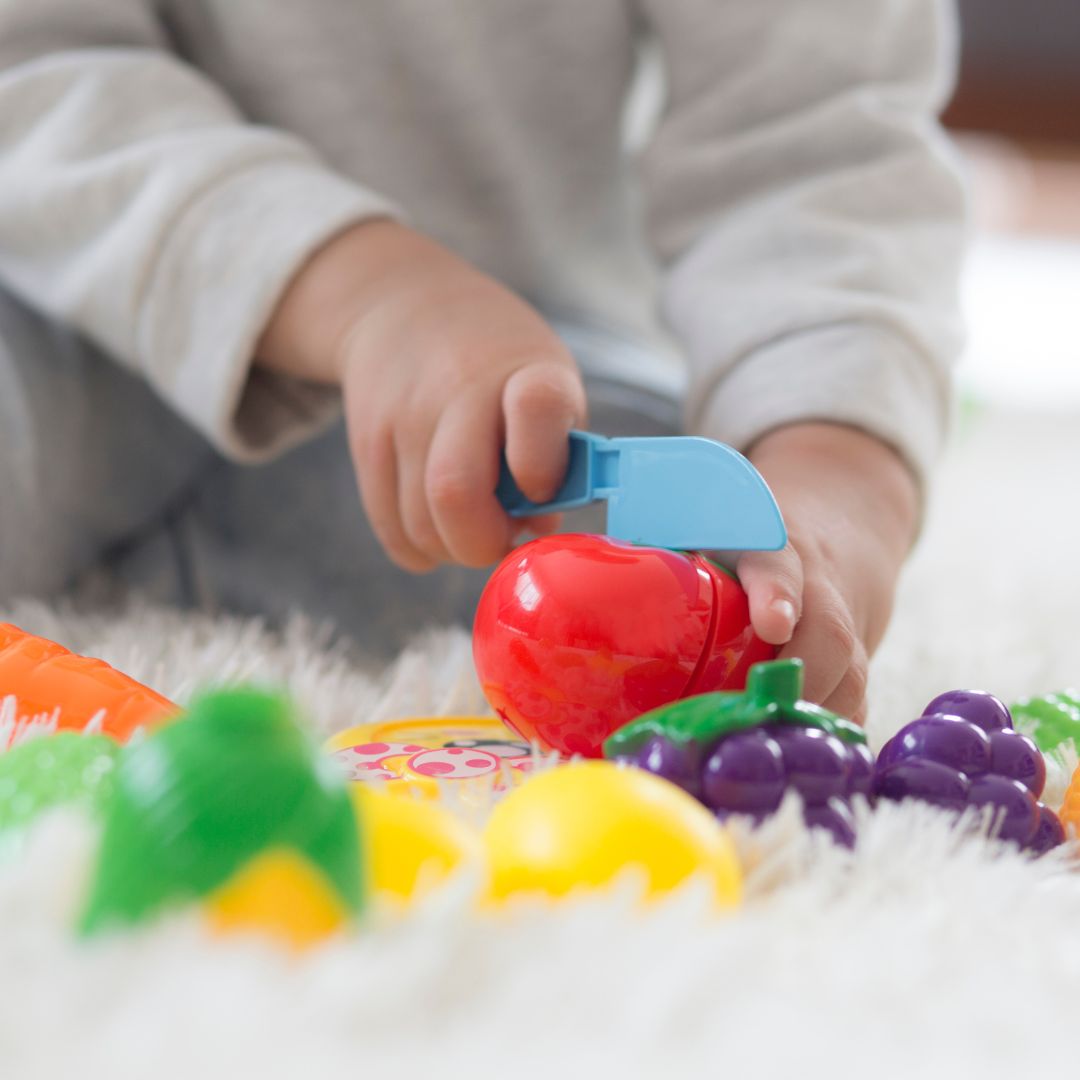
Pretend play is a mixed bag with parents. Some parents find it concerning while others encourage it. However, according to research, children who engage in pretend play have a more vivid imagination and possess greater creativity skills. Babies are naturally curious about everyday objects. Pretend play supports creativity, problem-solving, and social learning.
Pretend playtime ideas can look like:
- Offer safe household items like wooden spoons, empty plastic containers, and soft brushes. Let your baby explore these items in a safe environment.
- Engage in pretend play by acting out simple scenarios, like pretending to “cook” with them. This type of role-play sparks imagination and social skills.
- Use toys such as stuffed animals to play out different scenarios such as shopping, gardening or tidying up.
Tummy Time with Visual Stimulation
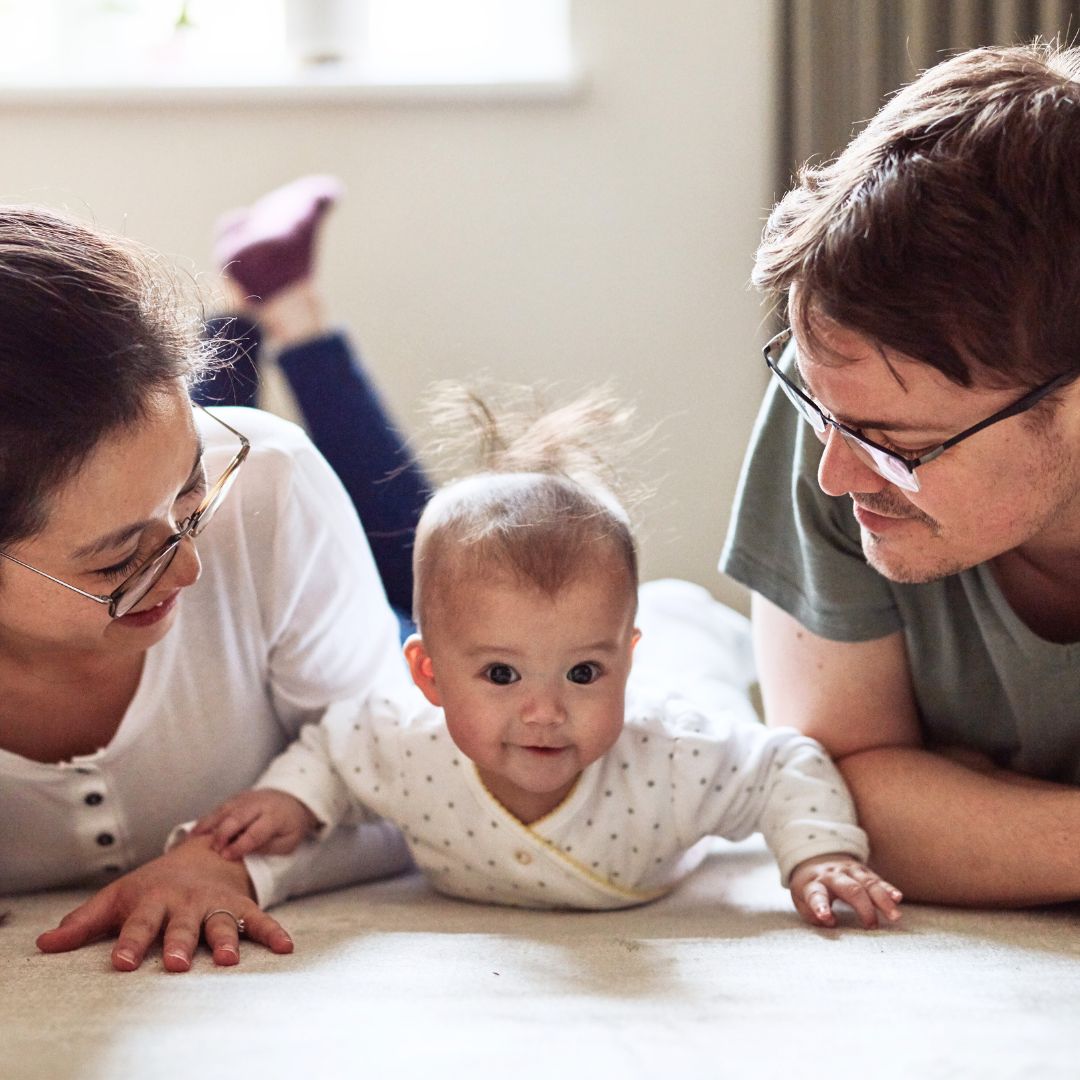
Tummy time in general is very important for your baby’s growth and development. It helps with building neck, shoulder, and core muscles, while also giving babies a new perspective on their surroundings.
Instead of regular tummy time, you can incorporate fun visual stimuli to make an engaging playtime activity out of it.
- During tummy time, place high-contrast images or colorful toys at eye level to encourage your baby to lift their head and look around.
- Rotate toys and change their positions to encourage reaching and rolling, further developing motor skills and strength.
- Ask your partner to join in on the fun and engage with your baby as they lay on their tummy.
ALSO READ: Tummy Time 101 – Why Your Baby Needs It
Playtime is more than just fun—it’s a powerful tool for supporting your baby’s intelligence and development. These activities aren’t just about keeping babies occupied; they help them build foundational skills that will support them as they grow and learn.
By engaging with your baby in meaningful play, you’re fostering curiosity, creativity, and a love of learning. So, embrace these moments, knowing that each play session is helping your little one grow into a curious, intelligent, and well-rounded individual!


